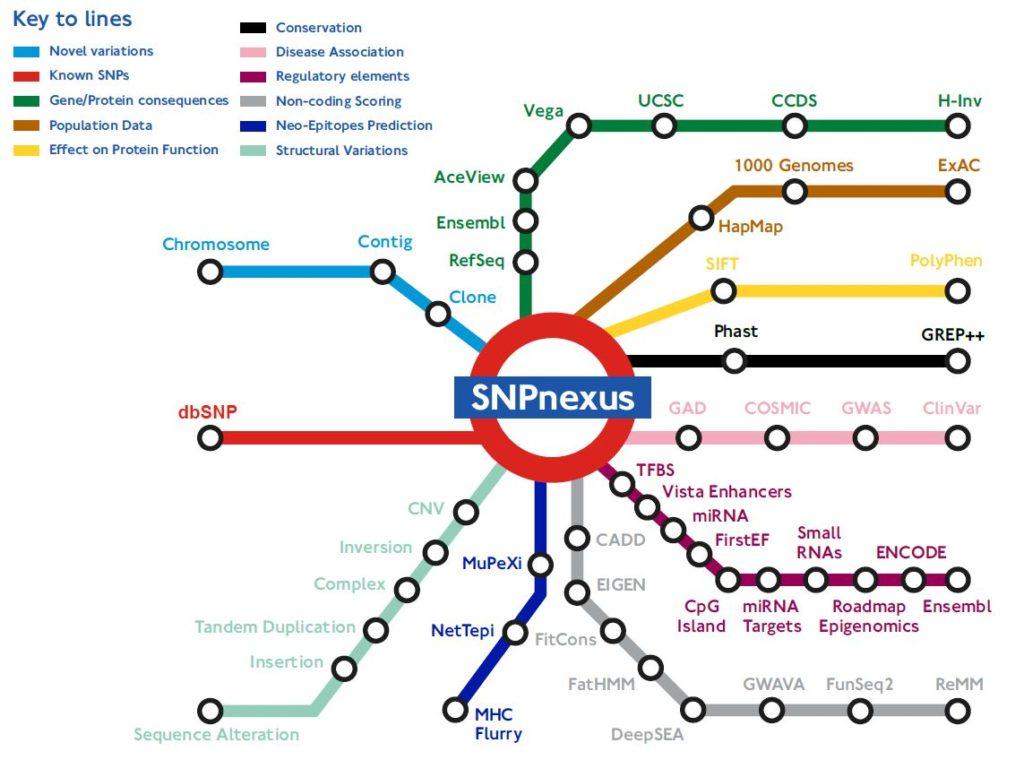SNPnexus: Assessing the impact of genetic variation
A team of researchers from BCI’s Centre for Molecular Oncology, led by Prof Claude Chelala, have made new developments to SNPnexus- a computational tool that allows for the assessment of the functional effect of sequence variants within the genome. The team hope that the new release, generously supported by Barts Charity, will facilitate the development of precision medicine, allowing for the identification of effective gene targets for therapy.
 The technological advances, and significant reduction in the cost, of sequencing our genetic information has made it possible to have access to the sequence of genomes and detect variations between healthy individuals and those affected by particular diseases. The next challenge lies with the analysis of these variations in order to select those which contribute to the phenotype and assess their implications in diseases.
The technological advances, and significant reduction in the cost, of sequencing our genetic information has made it possible to have access to the sequence of genomes and detect variations between healthy individuals and those affected by particular diseases. The next challenge lies with the analysis of these variations in order to select those which contribute to the phenotype and assess their implications in diseases.
SNPnexus aims to address this challenge. It is an already popular and widely used tool to aid researchers in mining the sequence data, understanding the role of these variations and assessing their impact to prioritise the clinically relevant ones. This constitutes a critical step towards the development of targeted solutions that could selectively block the impact of these variations and improve patient management.
The new release
New developments to SNPnexus, were described in a recent publication in Nucleic Acids Research. These enhancements ensure that SNPnexus remains a cutting-edge tool and continues to contribute toward maximizing the knowledge extracted from sequence variation data.
Prof Chelala said:
The clinical utility of NGS is becoming increasingly apparent. It is vital to have computational strategies in place that are capable of interpreting the data generated and ensuring that the clinical utility of findings can be translated back to the bedside. My group has a lead in this development by designing SNPnexus to address the data analysis challenge. SNPnexus has a constantly growing, national and international user community with around 2,000 analysis requests submitted each month from leading research Institutions in Europe, Asia and US.
The team hope that these improvements will continue to enhance the understanding of the functional role of genetic variation and its impact on disease susceptibility and progression.
Francesca Gliubich, Director of Grants at Barts Charity, said:
SNPnexus supports the researchers in navigating the immense sequence data available to extract the information that is going to make a difference in understanding disease and tailoring treatments to improve patient outcomes. We are proud to be supporting Professor Chelala in developing SNPnexus.
Category: General News, Publications

No comments yet